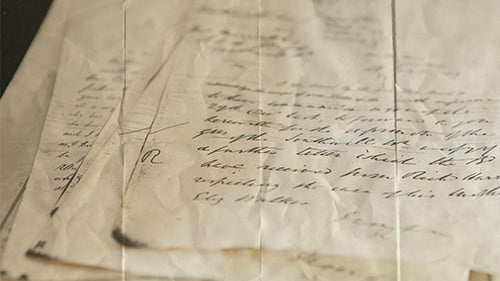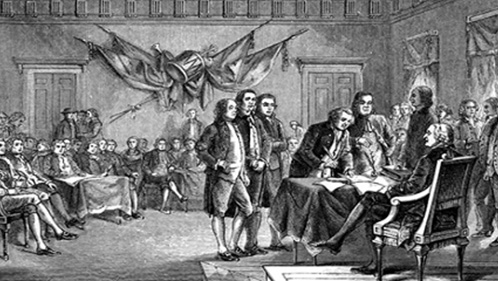Developing Historical Thinking Skills in AP® Social Studies
In 2015, the College Board introduced several changes to the AP U.S. History course and exam. One significant addition was the inclusion of new...
AP & Honors Mathematics
Explore Wiley titles to support both AP and Honors mathematics instruction.
Literacy Skills & Intensive Reading
Connections: Reading – Grades 6–12
Empower student success with a proven intensive reading program that develops strong reading skills in striving readers.
Drama, Speech & Debate
Basic Drama Projects 10th Edition
Build students’ confidence and competence with comprehensive, project-based theatre instruction.
Literature
Connections: Literature
Support learners as they study dynamic, relevant texts and bring the richness of diverse voices to students through literature.
Literature & Thought
Develop critical thinking, reading, and writing across literacy themes, genres, historical eras, and current events.
Language Arts
Vocabu-Lit® – Grades 6–12
Help students build word power using high-quality contemporary and classic literature, nonfiction, essays, and more.
Connections: Writing & Language
Help students develop grammar, usage, mechanics, vocabulary, spelling, and writing and editing skills.
Reading/English Language Arts
Measuring Up to the English Language Arts Standards
Incorporate standards-driven teaching strategies to complement your ELA curriculum.
English Language Learners
Measuring Up for English Language Learners
Incorporate research-based best practices for ELLs with an approach that includes a focus on language acquisition strategies.
Mathematics
Measuring Up to the Mathematics Standards
Incorporate standards-driven teaching strategies to complement your mathematics curriculum.
Foundations
Measuring Up Foundations
Help students master foundational math skills that are critical for students to find academic success.
Science
Measuring Up to the Next Generation Science Standards
Give students comprehensive NGSS coverage while targeting instruction and providing rigorous standards practice.
Assessment
Measuring Up Live
Deliver innovative assessment and practice technology designed to offer data-driven instructional support.
For a better website experience, please confirm you are in:

The beginning of the school year is an important time for establishing expectations and forming relationships, both teacher-student and student-student. In my district, we teach government and civics and AP® U.S. Government and Politics to sophomores, so I used to spend a good bit of time convincing 15 year olds that government was relevant to their daily lives. Over the past few years, I find that I spend less and less time convincing students that our content is important and more and more time supporting student thinking and problem solving and encouraging positive and respectful interactions among students. Building a positive and encouraging classroom culture is always important, but it is becoming more and more imperative in AP® U.S. Government and Politics given the current state of our politics and the increasingly politicized nature of our content. We have to be willing to spend the time at the beginning of the year to build that positive culture to ensure that every student feels safe to participate and that their participation is valued by both teachers and students alike.
This lesson plan is great for establishing expectations regarding group work and thinking critically, as well as encouraging students to evolve in their thinking as they learn more about a topic and solve problems within their group. I use this lesson on the second day of class, but it would be useful at any time during the year to support the aforementioned skills. You could also swap out the data for something that is more relevant to the unit you are teaching. The data analysis piece also supports the skills on the quantitative analysis FRQ and it's never too early to build those writing skills!
Paula Franklin teaches AP® US Government and Politics at West High School in Knoxville, Tennessee. She has been teaching the course for nine years and has served as an AP® Reader, table leader, and early table leader at the AP® US Government and Politics Reading over the past five years. She has a B.A. in Political Science and an M.S. in Theory and Practice in Teacher Education from the University of Tennessee, and an Ed.S. in Instructional Leadership from Lincoln Memorial University. Paula is a 2017 Milken Educator, a Lowell Milken Center for Unsung Heroes Fellow, an AP® US Government and Politics Mentor, and a member of the iCivics Educator Network.

In 2015, the College Board introduced several changes to the AP U.S. History course and exam. One significant addition was the inclusion of new...

The middle of the school year is a unique crossroads for AP Social Studies teachers. The initial enthusiasm of fall has faded, the intensity of...

Early in a school year it can be a real challenge to know how to begin teaching students critical skills they need to score on the AP® U.S. History...

Primary sources provide students with a personal window into the past, enabling them to view history as human stories rather than a list of facts....

One of the greatest rewards of teaching history is when students can show that they can make effective arguments supported by historical evidence....

One of the things that I spent most of my time thinking about, when the redesigned AP U.S. History course went into effect, was how to deal with the...

The start of a new year always a wonderful opportunity to introduce students to effective, research-backed methods for studying more effectively....

For many students, the most intimidating part of an AP® Social Studies exam isn’t the content—it’s the rubric.

AP Social Studies courses ask students to do something uniquely difficult: think with big,universalideas while working with very specific...

Get to know one of our editors, Joseph Bianchi, who specializes in AP® Social Studies. Joe answers our questions about how he carries over his 25...

Do you need some ideas and/or extra support to organize your AP® United States History course? Join Lou Gallo as he shares ideas on how to organize...

When most teachers—and students—think about a DBQ, they think about writing. And yes, writing the full essay is essential. But if that’s all we ever...
